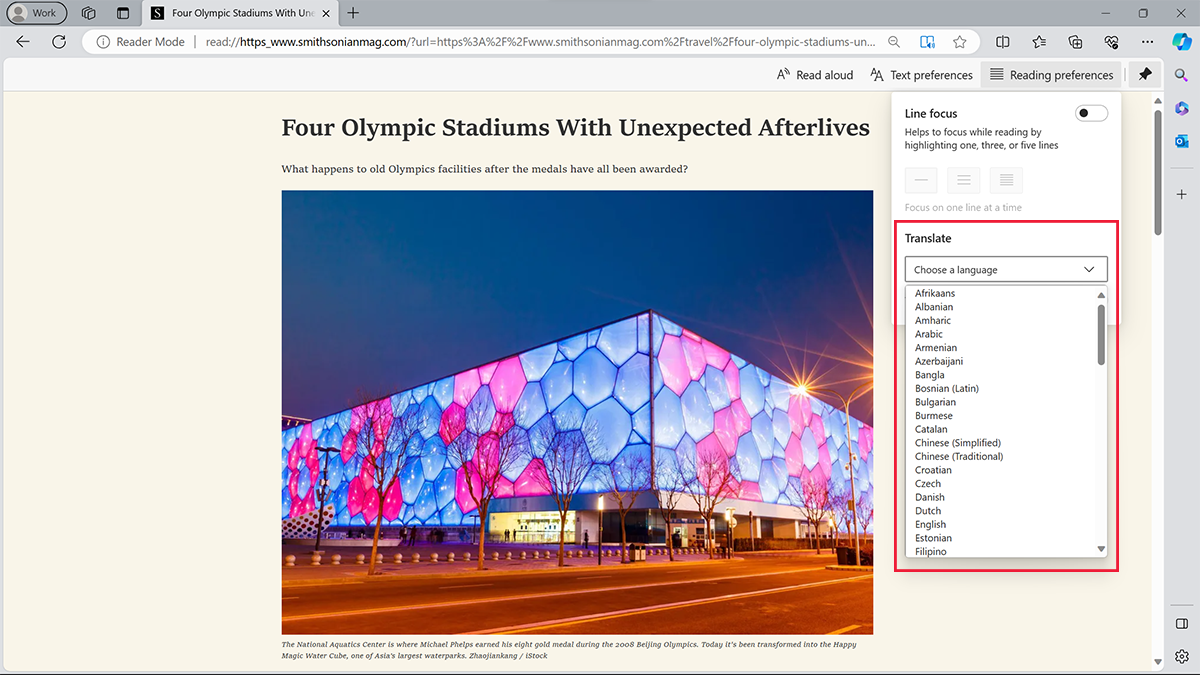Learners as changemakers
The journey to cultivate learners as changemakers begins with education, awareness, and curriculum integration. Educators can weave social and environmental issues into the curriculum to provide a comprehensive understanding of complex issues. The use of AI complements this integration by offering extensive access to information and letting learners delve into various global challenges that interest them.
- Research tool: Search Coach offers real-time coaching on healthy information literacy best practices to help learners gather detailed information about global issues. Copilot can curate and recommend articles, studies, and data relevant to specific topics like climate change or social justice.
- Interactive learning platforms: Copilot can suggest content for learners based on individual preferences and activities to make the learning process more personalized and effective.
Critical thinking, problem-solving skills, providing resources, and teaching about responsible AI are central to developing changemakers. Project-based learning with a focus on real-world problems cultivates these skills. Learn more about real-world problem solving from the 21st Century Learning Design pathway.
Educators can support this skill development by offering guidance and resources. AI helps with analyzing complex data and problem solving. Incorporating responsible AI into this framework ensures that learners are prepared to use technology responsibly and ethically as they navigate tough topics. The AI Student Toolkit offers resources educators can use as they share Copilot with learners.
Community engagement, creating a supportive environment, and recognition involve motivating learners to engage in community services and events to understand the real-world impact of their actions. Educators can foster an atmosphere where learners feel safe and confident in expressing their ideas. Recognizing and celebrating the efforts and achievements of learner changemakers is important to nurture their motivation and sense of accomplishment.
- Target audience: Because it’s connected to real-time information online, Copilot can analyze trending topics to help learners identify ways to engage with their communities. Learners involved in a design thinking process can use Copilot’s analysis to understand the needs of their audience.
- Research support: Copilot can also help learners identify and engage with current community issues and campaigns.
- Recognition algorithms: Insights in class teams highlights learner participation and achievements with AI-powered analytics and can help educators identify learners to spotlight. Educators can then give personalized recognition and encouragement with Praises in class teams.
To develop leadership, teamwork, and collaboration*, educators need to provide learners with opportunities to lead and work in teams. Enhance leadership and teamwork abilities through learner-led initiatives and collaborative projects that involve learners, educators, and the broader community.
- Collaborative digital tools: Microsoft Planner can facilitate teamwork by helping learners to collaborate effectively on projects regardless of geographical barriers.
- AI as a team resource: Introduce AI tools like Copilot in group projects where AI can assist with data analysis by offering insights and ideas that help learners get used to working alongside AI.
Empathy, cultural awareness, and global connectivity are vital for effective changemaking. It’s important for educators to promote understanding of different cultures and perspectives. Microsoft tools can play a significant role by connecting learners with peers and experts worldwide. This connection facilitates a global exchange of ideas, which fosters empathy and cultural understanding.
Language translation tools: Translation and language learning tools can break down language barriers and facilitate global communication and understanding. The Translate feature is available in Word, Excel, OneNote, Outlook, and PowerPoint. Translation is also available in Microsoft Edge browser and Immersive Reader. These tools offer translation for over 130 languages.
Cultural exchange platforms: Educators can use Teams meetings to connect learners with peers around the world. These virtual meetups and collaborative international projects foster cultural exchanges and global understanding. Empower learners by encouraging them to create their own videos to share with other learners around the world. Educators can use Copilot to help ideate topic prompts for building cultural connections.
Finally, nurturing innovation and exploration is essential. Encourage learners to think creatively and innovatively in addressing various issues. AI tools can be instrumental in this creative process by providing new ways of thinking and approaching problems to foster a generation of innovators and creative problem solvers.
- Creative AI tools: AI-driven design software like Microsoft Designer and Clipchamp can assist learners in creative projects by offering new perspectives and ideas that they might not have considered.
- Idea generation: Copilot and AI-powered QuickStarter tools in Microsoft Word and PowerPoint can support brainstorming sessions by generating innovative ideas or solutions for problems.
Incorporating AI-powered tools and applications into education not only enriches the learning experience but also prepares learners to become effective changemakers. They learn to use technology for research, problem solving, and creative thinking—all of which are crucial skills for today. Through this integrated approach, learners are educated about global issues and equipped with necessary skills, resources, and ethical understanding. When educators effectively use AI and other tools, they can prepare learners to be effective changemakers in a complex world.
